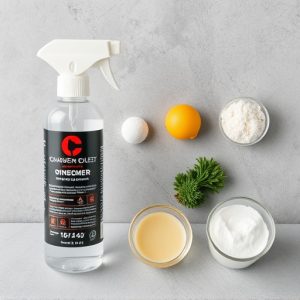Decoding OC Spray Laws: Ingredients, Regulations, and Public Safety Across America
OC spray, a self-defense tool containing oleoresin capsicum, is a non-lethal irritant that effective…….
OC spray, a self-defense tool containing oleoresin capsicum, is a non-lethal irritant that effectively deters attackers by causing intense burning sensations upon contact with the eyes, skin, or respiratory tract. OC sprays are subject to varying legal regulations across different jurisdictions, with the U.S. having specific federal guidelines and state-level limitations that dictate the strength and form of the pepper spray civilians can possess and use, emphasizing public safety and compliance with laws. It's crucial for users to be well-informed about both the ingredients in OC sprays, like capsaicin, and the precise legal frameworks applicable to their use and possession to avoid legal issues and ensure lawful self-defense. Users must understand that improper use or unauthorized possession of OC spray can lead to legal penalties. Proper education on the application and regulation of OC sprays is vital for both maintaining individual safety rights and upholding community order.
Title: Navigating the Legal Landscape of OC Spray: A Comprehensive Guide to Ingredients, Regulations, and Implications
In recent years, the use of Oleoresin Capsicum (OC) spray, commonly known as pepper spray, has become a topic of considerable legal scrutiny. As self-defense tools, these sprays contain ingredients derived from chili peppers, designed to incapacitate assailants. However, the legality of OC spray varies significantly across different jurisdictions, necessitating a nuanced understanding of both state-specific regulations and the implications for public safety when considering its use or possession. This article dissects the complexities of OC spray ingredients, delves into the varying legal statuses across the U.S., and examines the potential consequences of misuse within the legal framework. Understanding these aspects is crucial for anyone seeking to navigate the intricacies of pepper spray laws responsibly.
Understanding OC Spray Ingredients and Their Legal Status Across Different Jurisdictions
OC spray, commonly known as pepper spray, is a non-lethal self-defense tool that contains oleoresin capsicum (OC), an irritant derived from hot peppers. The ingredients in OC spray are formulated to temporarily incapacitate an attacker by causing intense burning and irritation to the eyes, skin, and respiratory system upon contact. Understanding these ingredients is crucial for users to comprehend the effects and limitations of pepper spray. While the active component, OC, is the primary focus, other ingredients may include inert compounds that enhance stability or shelf-life. The legal status of OC spray varies across different jurisdictions, with some regions allowing it for self-defense, law enforcement, crowd control, and even for personal protection in specific circumstances. Legislation defining the permissible concentration of OC, restrictions on its use, and who can legally possess it, differ significantly from one state or country to another. In the United States, for instance, federal laws set minimum standards, but individual states have the authority to enact their own regulations, which may include limitations on the types of pepper sprays available to civilians, such as the strength of the spray or its form, like gel or foam. This patchwork of laws necessitates careful consideration by consumers and legal entities alike to ensure compliance with local statutes when purchasing, carrying, or using OC spray for self-defense purposes. It is imperative for individuals to research and adhere to the specific regulations governing pepper spray in their locale to avoid unintentional legal infractions.
Navigating State-Specific Regulations Governing the Use and Possession of OC Spray
When considering the use and possession of Oleoresin Capsicum (OC) spray, commonly known as pepper spray, it’s imperative to navigate the complex array of state-specific regulations that govern its application. Each state in the U.S. has its own set of laws dictating the legalities surrounding OC spray, from restrictions on purchase and carry to limitations on the concentration of its active ingredients, capsaicin. For instance, some states allow civilians to carry pepper spray for self-defense without a permit, while others require a concealed carry license or have stringent limitations on who may possess it. The OC spray ingredients themselves are subject to regulation, with varying limits on the potency that can be legally sold and owned. State regulations often specify the maximum capsaicin concentration in pepper sprays, ensuring public safety while allowing for effective self-defense products. It’s crucial for individuals to familiarize themselves with their state’s laws to ensure compliance and to understand the legal scope of their right to self-defense through the use of OC spray. Additionally, understanding the components of the product one carries is essential, as some states may have specific restrictions on certain ingredients that are otherwise allowed in other jurisdictions. Therefore, staying informed about these state-specific regulations is a prerequisite for responsible pepper spray possession and use.
The Impact of OC Spray Ingredients on Public Safety and Legal Implications for Misuse
OC sprays, commonly known as pepper sprays, contain active ingredients such as oleoresin capsicum (OC) that induce intense irritation upon contact with mucous membranes. The impact of these ingredients on public safety is multifaceted. On the one hand, OC spray serves as a non-lethal self-defense tool for law enforcement and civilians alike, deterring potential threats and facilitating the de-escalation of confrontational situations. On the other hand, the improper use of OC sprays can lead to severe consequences, including accidental harm to bystanders or unintended victims, thus highlighting the necessity for strict regulation and responsible handling.
Legal frameworks governing the use of OC sprays are designed to balance personal safety with public order. These laws typically mandate specific training for law enforcement officers before they can carry and deploy such weapons. Moreover, there are stringent guidelines on where and under what circumstances pepper spray can be used. Misuse, whether through unauthorized possession or application in non-permissible scenarios, carries legal implications that can range from fines to criminal charges. The legal system’s approach underscores the importance of understanding the potential effects of OC spray ingredients, advocating for their responsible use and emphasizing accountability to uphold public safety. Understanding the legal boundaries and scientific composition of OC sprays is crucial for effective policy-making and ensuring that these tools are used appropriately, thereby safeguarding both individual rights and community well-being.


